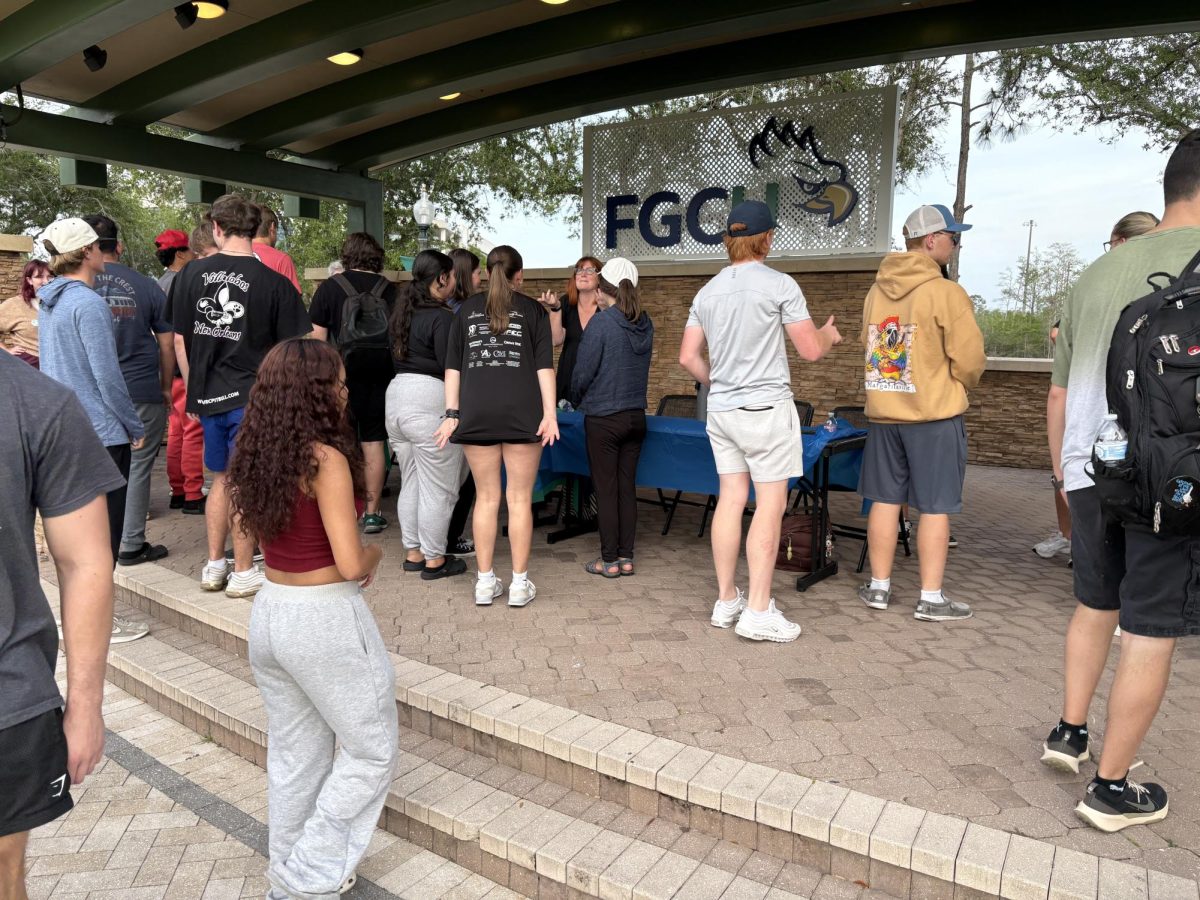Anonymous App, Yik Yak, Facilitates Campus Culture
January 26, 2023
Our society exists in the digital age. Globally, a large amount of entertainment, communication and education is done fully or partially online. FGCU is no exception. The impact of technology on campus has been received through social media.
Instagram pages such as @fgcubarstool and @flgulfcoastchicks and class Snapchat stories have been a way for students to add to FGCU culture and provide entertainment for viewers. The anonymous bulletin board app Yik Yak, however, yields similar effects, but users do so completely anonymously.
Users post “yaks,” which are messages that are 200 characters or less, which are then visible to all users within a five-mile radius. Since campus is a hub for people to gather, students can see all yaks posted on or near FGCU. The app has been growing in popularity, following its return to the App Store in Aug. 2021 after a four-year period of unavailability. It was initially removed due to it being a source of cyberbullying.
“During Fall 2021, everybody was on it,” FGCU Resident Assistant Chris Forestal said. “From when I would go to class, there were people talking on the bus about it. When I was working the front desk, we were talking about it, and when I was doing rounds as part of my RA job, I would hear people mention it every so often.”
The app’s comeback was possible due to the Yik Yak team’s instatement of “community guardrails,” rules for all users to abide by if they wish to continue participating. These rules address issues such as bullying, harassment, threats, violence, illegal activity, explicit content and minor safety.
Yik Yak is frequently used to gather information and opinions, always to be taken with a grain of salt, as noted by Forestal. Students ask for help on assignments, locations of parties and opinions on various topics, not always relating to FGCU. The app is constantly spammed with requests for sex, but are often deleted due to the app’s upvoting and downvoting feature. When a yak is downvoted five times, it is removed.
Like many other mainstream social media apps, Yik Yak has addictive qualities. To see new yaks as they come out, users must consistently check the app. The ability to say anything anonymously is intriguing, and reflects in the vulgarity and riskiness of some messages.
“I’ve viewed it as a new kind of news source, like hot gossip meets The Weather Channel,” senior Amanda Torres said. “If the campus preacher is on campus, someone will post it. If someone’s screaming down the hallway, someone will post it. If you want to know what’s going on at a building, dorm, or party, they’ll post it. Yik Yak’s become a new way to share campus information.”
Torres added that she first received news of Hurricane Ian and Hurricane Nicole through Yik Yak, and has also met friends by going to events that were posted on the app. However, she accrued a stalker from the platform. The situation was resolved by UPD.
At first glance, Yik Yak may seem like a foolproof way to connect with fellow students and campus culture, but there are serious doubts about the credibility of some messages. Due to the anonymous nature of the app, people can post inaccurate information consequence-free. There is also an element of danger if meeting someone off the app due to the anonymity feature.
“Anonymity breeds distrust and breeds inaccuracy, it’s just too easy to post false information on a platform like that,” FGCU Public Relations Instructor I Kara Winton said. “As a college professor, I’m very concerned about the toxicity that this platform could cause for students who already have a lot of pressures on them from a mental health perspective. Being able to just post anything without attaching it to your name could lead to gossip, rumors, disingenuous comments and outright negativity.”
The culture that Yik Yak helps build is to be thought of critically. There is no outright evidence that posts are accurate, unless there is a visual attachment, or users go out of their way to verify claims made on the app. While the credibility of Yik Yak is questionable, it remains a way for students to learn about their campus and connect with one another no matter how risky.
“With Yik Yak, it’s become a campus forum where you don’t need permission to post what you want,” Torres said. “As an anthropology student, it’s fascinating to watch because you still see humanity being humanity, either from it being funny, terrifying, wonderful, or exciting, or just being able to say, ‘That sounds like something that would come from an FGCU student.’”





























